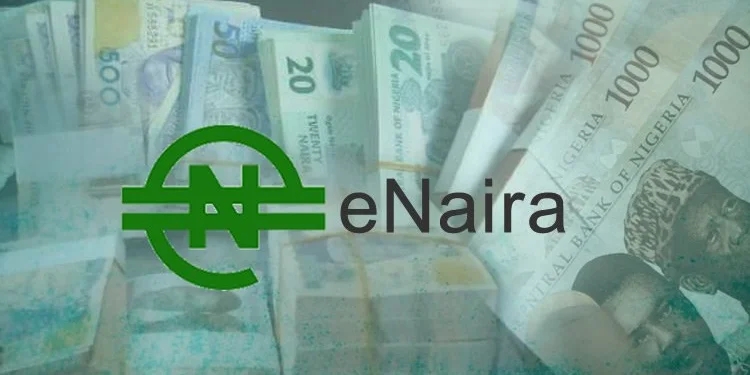Article summary
- The Federal Government of Nigeria recently approved a National Blockchain Policy, which paves the way for the country to adopt the technology in several areas. At the same time, the government is pushing for the adoption of the country’s Central Bank Digital Currency (CBDC), the eNaira.
- In this exclusive interview with Nairametrics, the Co-Founder/CEO, of Zone, Obi Emetarom, speaks on the national blockchain policy and how Nigeria can leverage the technology in several areas, including elections, identity management, and registrations, among others.
- He also identified factors that could give the country’s digital currency wider acceptance.
Nairametrics: Zone is one of a few Nigerian companies leveraging blockchain technology to drive payments. What can you say about the recent approval of blockchain policy by the federal government?
Obi Emetarom: The Nigerian government’s approval of the National Blockchain Policy signifies recognition of blockchain’s potential to transform sectors like finance, supply chain, and public administration. This technology could help address issues such as corruption and inefficiencies and support financial inclusion.
At Zone, we are already demonstrating this potential by leveraging our regulated blockchain network to enable payments for some of Africa’s biggest commercial banks, fintechs, and OFIs. That said, the success of this policy hinges on creating protective yet innovation-friendly regulatory frameworks and investing in education and capacity building.
The policy could position Nigeria as a blockchain leader in Africa, attracting global investments and accelerating digital transformation, provided it is effectively implemented and operationalized through robust public-private partnerships.
Nairametrics: How crucial is a supportive and business-friendly regulatory framework to fostering innovation and the adoption of blockchain-based solutions in Nigeria?
Obi Emetarom: A business-friendly regulatory framework is clearly crucial to innovation and adoption within the blockchain and digital asset domains simply because many institutional businesses will not engage in a sector where regulation is unfriendly and/or seen as a major risk factor.
Also, out of fear of loss, many end users will not adopt financial products that are not supervised by regulators. That said, careful consideration and creativity have to be applied to ensure that the need to have business-friendly regulations does not overshadow the other critical goal of protecting end-users and the financial system as a whole.
Nairametrics: What can you identify as some of the potential use cases for blockchain technology beyond the finance and banking sectors that could be transformative for Nigeria’s economy?
Obi Emetarom: Generally, blockchain is about establishing trust between participants in a commercial, civic, or even personal engagement by establishing trust in all digital records and digital processes associated with such engagement.
With that in mind, key areas aside from financial services that require digital records and digital processes to be trusted include public sector services like identity management, voting, company registration, law enforcement, immigration, and customs.
Other areas include health care, real estate, supply chain management, and legal contracting. Deploying decentralised apps on blockchain to address these areas will significantly accelerate the ongoing transition to a fully digital economy, which will, in turn, unlock substantial increases in productivity and deliver significant progress in terms of economic development.
Nairametrics: Do you see the government’s plans to expand the use of e-Naira having any impact on businesses and consumers in Nigeria?
Obi Emetarom: Based on the capabilities available today, the use of eNaira will benefit businesses and consumers primarily through improved speed and reliability of payment transactions.
For reliability, the elimination of dependence on multiple systems to process transactions will reduce failure points, while for speed, the fact that sender and beneficiary balances are on the same system will guarantee instant settlement and real-time value for each transaction.
Over time, more capabilities are likely to evolve, which could support the use of eNaira with other types of financial services, potentially reducing the cost of lending and simultaneously improving the return on investments significantly.
One clear aspect that has to be addressed is the openness for third parties to layer on innovative financial solutions, especially solutions targeting the underbanked population. Two others are fees and the reliability of the core infrastructure.
The fees charged for using eNaira-based services have to be competitive and customer friendly in order to appeal to end-users, while the infrastructure underlying the product has to be completely reliable to gain their trust and confidence.
Nairametrics: What are your thoughts on the proposed advisory committee to review the existing regulatory environment for blockchain technology and virtual asset services, and how can Zone contribute to this initiative?
Obi Emetarom: We think it’s a great initiative that will bring the required focus and understanding of the opportunity presented by blockchain and digital assets.
Enabling any sector through regulation requires a thorough understanding of opportunities, risks, and other dynamics of that sector, along with creativity in formulating guidelines to harness the opportunities while mitigating the associated risks.
We believe that the proposed advisory committee will provide the level of attention and focus required to achieve these desirable results. Within Zone, we believe we can leverage our understanding of automated on-chain governance powered by smart contracts and native blockchain frameworks to help explore the potential for on-chain regulation.
A simple way to summarise it is that on-chain regulation is an innovative paradigm that seeks to leverage the power of technology to regulate itself, thereby minimising the human effort and cost associated with regulation.
Nairametrics: How has Zone navigated the existing regulatory landscape in Nigeria, and what lessons can be learned from your experience that could be applied to the broader blockchain industry?
Obi Emetarom: Our big focus has been on aligning our offering with relevant regulatory requirements and working with the regulator on a journey to understand the technology, including its benefits and risks, as well as to appreciate the mechanisms put in place to mitigate such risks.
Our first engagement with regulators was to obtain a letter of no objection for us to process payment transactions in this new decentralised way, and this was granted and issued in 2021. At that time, we were partnering with a licensed payment switch to gain broader regulatory coverage. Our next engagement was to obtain our own full commercial licence to operate as a payment switch in Nigeria.
This was issued in September of 2022. Regarding lessons from our engagement, I think one big one has been that the regulators are actually very disposed to innovation, where such innovation has the potential to improve the functioning of the industry and where the risks of such innovation are understood and managed.
Nairametrics: Can you tell us some specific ways in which Zone can support the government’s efforts to encourage blockchain adoption and the use of digital currencies in Nigeria?
Obi Emetarom: One way to approach it is to think about the drivers of digital currency adoption. The first set of drivers are clear usage benefits like increased speed and reliability of financial services, as well as reduced cost and friction.
The second group is mechanisms to mitigate risk associated with financial services, i.e., fraud, money laundering, and misappropriation of funds, amongst others. Any system that facilitates the adoption of blockchain in finance should provide use cases that deliver end-user benefits while complying with regulatory requirements that mitigate usage risks.
Zone, being Africa’s first regulated blockchain network, allows digital currencies to automatically comply with regulation while remaining compatible and interchangeable with traditional fiat money. Zone supports two primary digital currency use cases: retail payment acceptance and real-time settlement for local and cross-border payments.
Zone also provides a platform and developer tools that allow third parties to build other use cases like currency conversion, trading, lending, investments, and insurance, amongst other decentralised financial services offerings.
Also, we are currently working on a new innovative concept that provides a technology-enabled framework and approach for regulating digital assets. We envision a complementary relationship where policymakers from the government define relevant policies and regulators enforce those policies, while organizations like Zone can partner with regulators to incorporate state-of-the-art technology into the implementation and enforcement of such policies in order to achieve the desired effectiveness with a high level of efficiency.
Nairametrics: Blockchain is a relatively new technology that is just gaining ground. Can you share any insights or predictions about the future of blockchain and digital currency adoption in Nigeria and the potential impact on the country’s economic growth?
Obi Emetarom: I believe the future of blockchain and digital currency adoption in Nigeria holds immense potential to transform the country’s economic landscape.
As technology continues to advance and the use of digital currencies becomes more widespread, as we’ve seen with the recent spike in the use of the e-Naira, we anticipate that Nigeria will experience an accelerated rate of financial inclusion.
I foresee a number of key trends and developments in the coming years, including increased adoption of blockchain technology by financial institutions. As more financial service providers recognise the inherent benefits of blockchain technology, such as enhanced security, transparency, and reduced transaction costs, we expect to see a surge in the adoption of blockchain-based solutions across the industry.
We’ve proven this with our blockchain-enabled payment infrastructure. Some of the biggest banks, fintechs, and OFIs in Nigeria are already integrating into our network to enjoy truly reliable and frictionless payment experiences.
I also see a wider acceptance of digital currencies for everyday transactions. The CBN’s Naira redesign policy highlighted the limitations of legacy payment systems, driving the adoption of eNaira.
This challenging period accelerated Nigeria’s shift towards digital currency acceptance. As more businesses recognise these benefits, digital currencies will become widely accepted for everyday transactions, making them more convenient and reducing reliance on physical cash.
Again, there will be enhanced cross-border trade and remittances. The adoption of blockchain and digital currencies can greatly streamline cross-border trade and remittances, reducing costs and complexities.
This shift has the potential to boost economic growth by fostering international trade and increasing remittance inflows to Nigeria. As we witness more countries searching for alternative payment solutions beyond the USD, digital currencies are emerging as a promising option for efficient cross-border transactions and global trade.

















